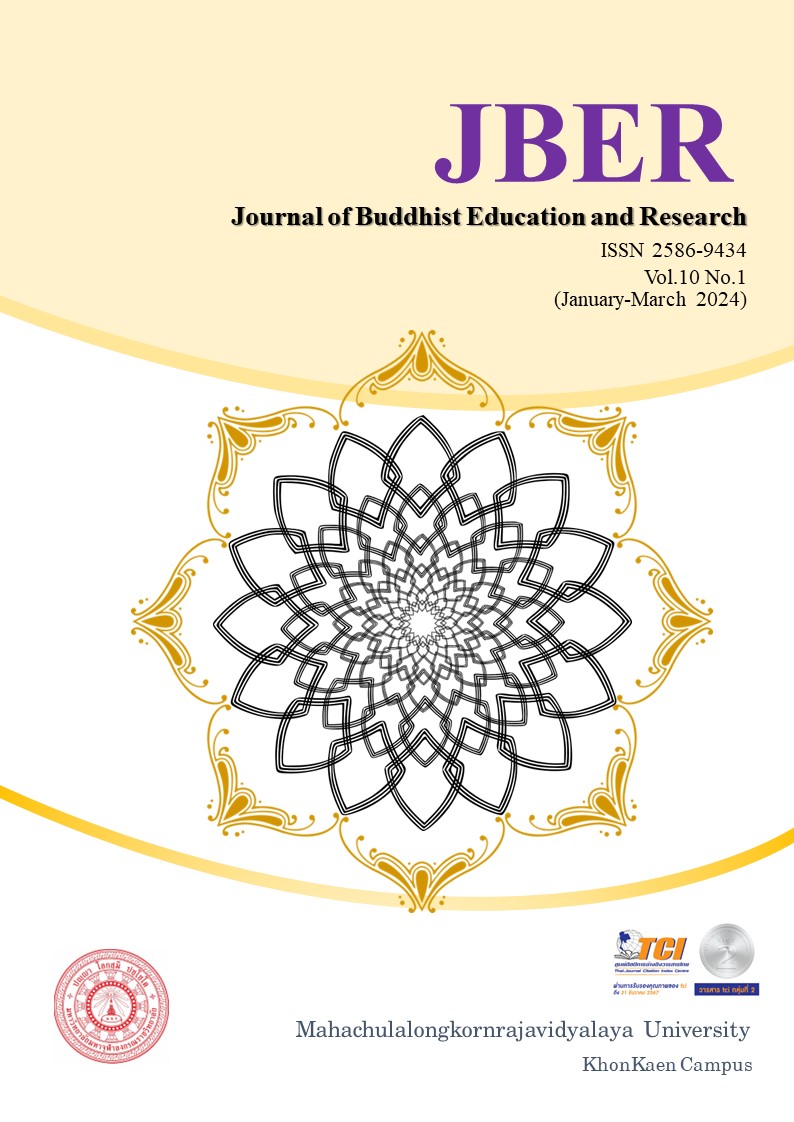ปัจจัยที่ส่งผลต่อแรงจูงใจในการพัฒนาประสิทธิภาพการให้บริการของบุคคลากรของสำนักงานสรรพากรพื้นที่กรุงเทพมหานคร 30
คำสำคัญ:
คำสำคัญ: แรงจูงใจในการปฏิบัติงาน, ประสิทธิภาพการให้บริการ, สำนักงานสรรพากรพื้นที่ 3บทคัดย่อ
บทคัดย่อ
การวิจัยครั้งนี้มีวัตถุประสงค์เพื่อศึกษา 1) ระดับแรงจูงใจในการปฏิบัติงาน และประสิทธิภาพการให้บริการ 2) เปรียบเทียบประสิทธิภาพการให้บริการของสำนักงานสรรพากรพื้นที่กรุงเทพมหานคร 30 จำแนกตามปัจจัยส่วนบุคคล และ 3) เพื่อนำเสนอแรงจูงใจในการปฏิบัติงานมีอิทธิพลต่อประสิทธิภาพการให้บริการ โดยเป็นการวิจัยเชิงปริมาณ เครื่องมือที่ใช้ในการวิจัยครั้งนี้ คือ แบบสอบถาม ทำการเก็บข้อมูลกับบุคคลากรของสำนักงานสรรพากรพื้นที่กรุงเทพมหานคร 30 จำนวน 142 คน ด้วยการสุ่มตัวอย่างแบบอาศัยความน่าจะเป็น และใช้วิธีการสุ่มตัวอย่างแบบชั้นภูมิ สถิติที่ใช้ในการวิจัยครั้งนี้ คือ ค่าความถี่ ร้อยละ ค่าเฉลี่ย ส่วนเบี่ยงเบนมาตรฐาน t-test, F-test และการวิเคราะห์แบบพหุคูณ Multiple Regression Analysis แบบ Enter
ผลการวิจัยพบว่า 1) ปัจจัยแรงจูงใจในการปฏิบัติงาน และประสิทธิภาพการให้บริการ อยู่ในระดับมาก โดยมีค่าเฉลี่ยอยู่ที่ 3.72 และ 3.84 ส่วนเบี่ยงเบนมาตรฐานอยู่ที่ .590 และ .472 2) ปัจจัยส่วนบุคคลด้านสถานภาพ ส่งผลต่อประสิทธิภาพการให้บริการ อย่างมีนัยสำคัญทางสถิติที่ระดับ .05 ในขณะที่ เพศ อายุ รายได้เฉลี่ยต่อเดือน ระดับการศึกษา ตำแหน่งหน้าที่ และประสบการณ์ในการทำงาน ไม่ส่งผลต่อประสิทธิภาพการให้บริการของบุคคลากรของสำนักงานสรรพากรพื้นที่กรุงเทพมหานคร 30 อย่างมีนัยสำคัญทางสถิติที่ระดับ .05 และ 3) แรงจูงใจในการปฏิบัติงาน มีอิทธิพลต่อประสิทธิภาพในการให้บริการ อย่างมีนัยสำคัญทางสถิติที่ระดับ .05 โดยมีค่า R2=.370 หรือคิดเป็นร้อยละ 3.70
เอกสารอ้างอิง
เอกสารอ้างอิง
กรมสรรพากร. (1 มีนาคม 2565). รายงานการบริการทรัพยากรบุคคล. สืบค้นเมื่อ 15 พฤษภาคม 2565, จาก http s://www.rd.go.th/publish/fileadmin/user_upload/human /ITA/OIT28_2_.pdf.
กรมสรรพากร. (7 กุมภาพันธ์ 2561). รายงานประจำปี. สืบค้นเมื่อ 13 เมษายน 2565, จาก https://www.rd.go. th/publish/fileadmin/user_upload/human /ITA/OIT28_2_.pdf.
กรุณา สุวรรณคำ. (2564). ประสิทธิภาพในการปฏิบัติงานของบุคลากร สำนักงานสรรพากรพื้นที่สมุทรปราการ 1. วิทยานิพนธ์บริหารธุรกิจมหาบัณฑิต (สาขาวิชาการบัญชี). บัณฑิตวิทยาลัย มหาวิทยาลัยรามคำแหง.
คณาธิป จันทร์สง่า. (2561). ปัจจัยที่ส่งผลต่อประสิทธิภาพการปฏิบัติงานของข้าราชการสำนักงานเขตสัมพันธวงศ์ กรุงเทพมหานคร. สารนิพนธ์รัฐประศาสนศาสตรมหาบัณฑิต. บัณฑิตวิทยาลัย มหาวิทยาลัยสยาม.
ฐาปนี สังขวิจิตร. (2563). ปัจจัยที่ส่งผลต่อประสิทธิภาพในการปฏิบัติงานของบุคลากร สำนักงานสรรพากรพื้นที่กรุงเทพมหานคร 25. วิทยานิพนธ์บริหารธุรกิจมหาบัณฑิต (สาขาวิชาการจัดการ). บัณฑิตวิทยาลัย มหาวิทยาลัยรามคำแหง.
ณัฐริกา กลิ่นเมือง. (2563). แรงจูงใจในการปฏิบัติงานของพนักงานบริษัท เอ็นซี โคโคนัท จำกัด ตำบลแพงพวย อำเภอดำเนินสะดวก จังหวัดราชบุรี. วารสารวิทยาการจัดการ มหาวิทยาลัยราชภัฎนครปฐม, 7(1), 261-274.
ดารณี ทองวิจิตร. (2564). แรงจูงใจกับประสิทธิภาพในการปฏิบัติงานของบุคลากร กรณีศึกษาสำนักงานสรรพากรพื้นที่กรุงเทพมหานคร 2. วารสารโรงการทวิปริญญาทางรัฐประศาสนศาสตร์และบริหารธุรกิจ, 8(2), 1-18.
พัชรี ชยากรโศภิต. (2562). ความสัมพันธ์ระหว่างแรงจูงใจกับประสิทธิภาพในการปฏิบัติงานของบุคลากร ในสำนักงานสรรพากรพื้นที่ปทุมธานี 2. วิทยานิพนธ์บริหารธุรกิจมหาบัณฑิต. บัณฑิตวิทยาลัย มหาวิทยาลัยเทคโนโลยีราชมงคลตะวันออก.
วัชรินทร์ พารักษา. (2564). แรงจูงใจที่มีผลต่อประสิทธิภาพในการปฏิบัติงานของพนักงานธนาคารธนชาต จังหวัดกรุงเทพมหานคร. วารสารการบริหารนิติบุคคลและนวัตกรรมท้องถิ่น, 7(2), 125-136.
Best, J. W. (1977). Research in Education (3rd ed). New Jersey: Prentice-hall Inc.
Krejcie, R. V. & Morgan, D. W. (1970). Determining Sample Size for Research Activities. Educational and Psychological Measurement, 30(3), 607-610.
Likert, R. (1932). A technique for the measurement of attitudes. Archives of psychology. 22(140), 1-55.





